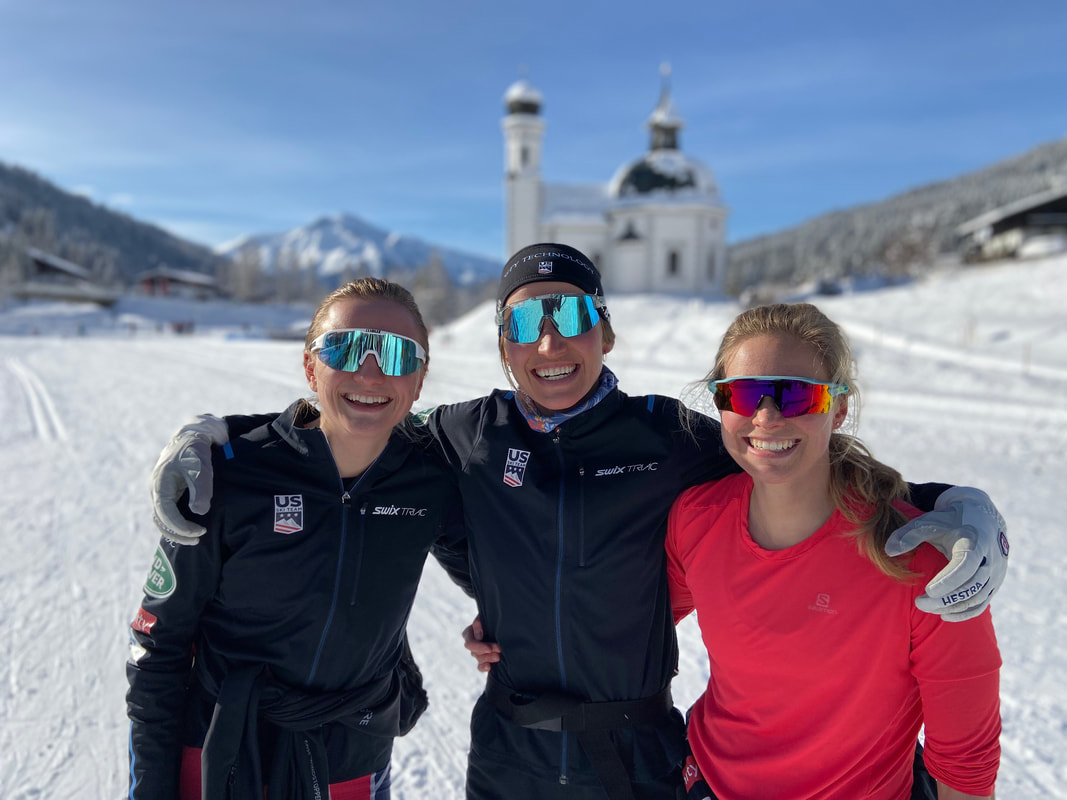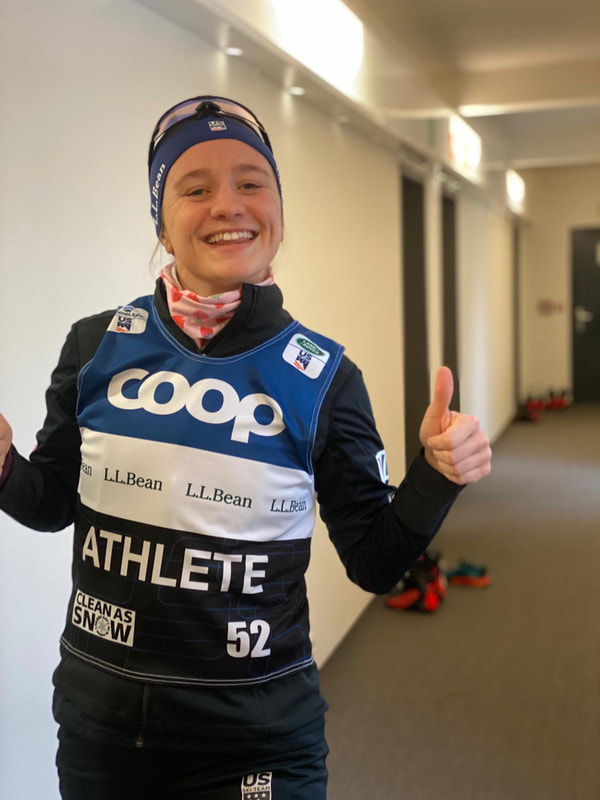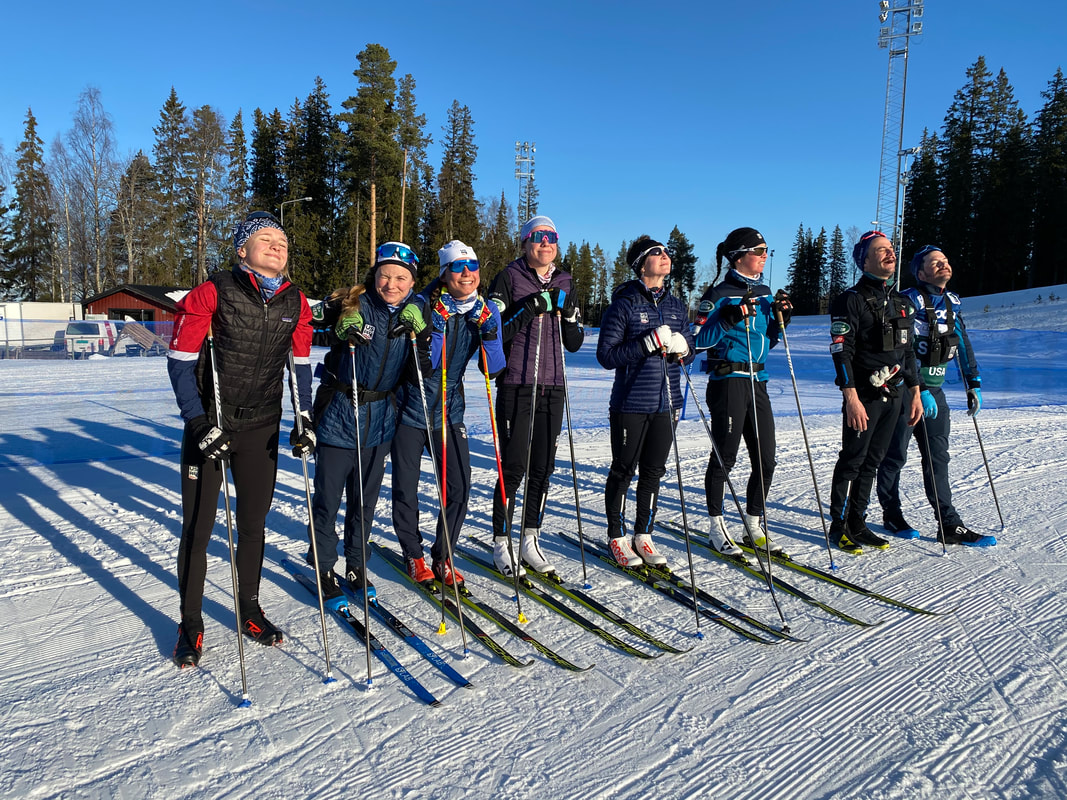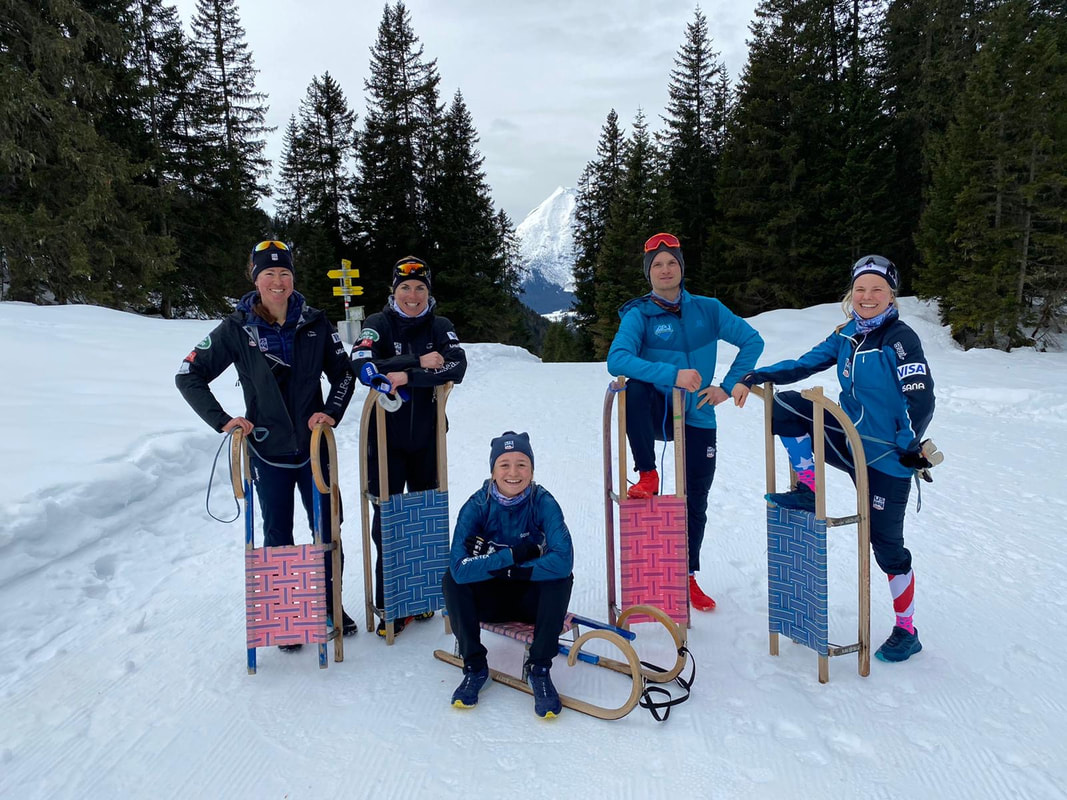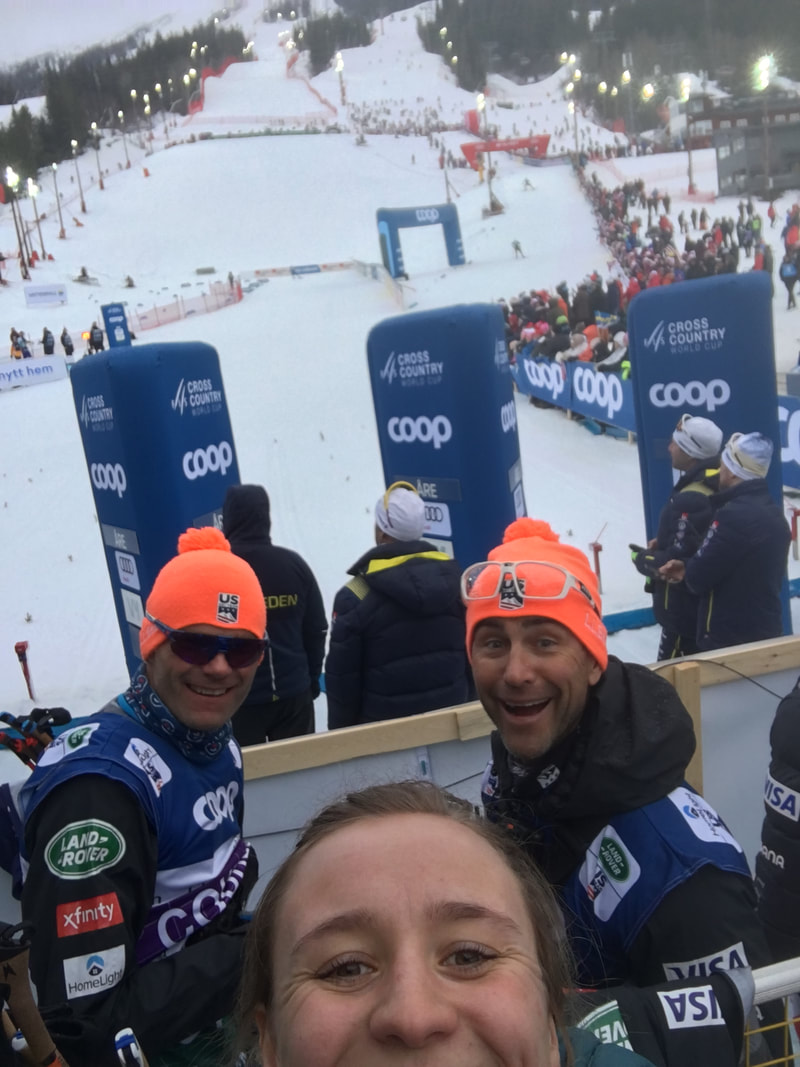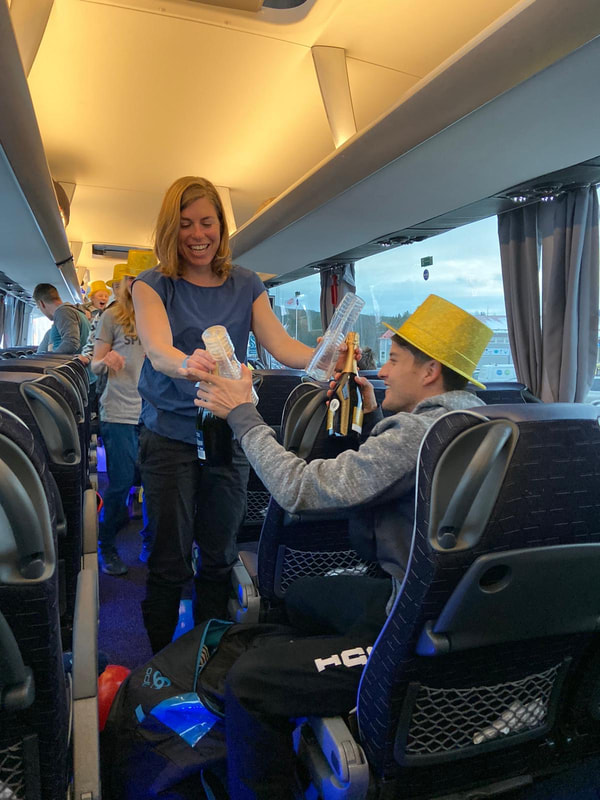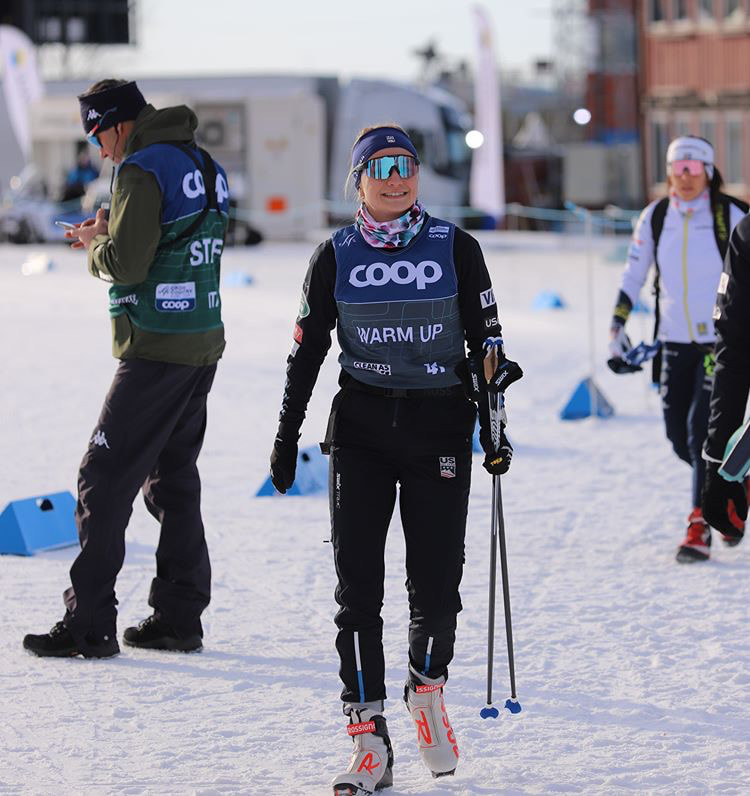Lessons from a World Cup Rookie2/18/2020 I have now been traveling on the World Cup circuit for five weeks and have finished nine races. I am currently in the middle of the 2020 Scandinavian Ski Tour which consists of six races in nine days throughout Sweden and Norway. So far, I have faced a lot of ups and downs while racing my first European World Cups. Seriously though, there are a lot of hills over here. We just go up-down, up-down, up-down, cross the finish line. It’s quite exhausting! There’s even been a sprint race where we just climbed straight up an alpine mountain! It has been intimidating, humbling and inspiring to witness the next level of ski racing, and I have already learned quite a few lessons… 1. Don’t forget your athlete bib. Ever. We typically ski around race venues during the early parts of the week when anyone is free to access the trails. However, as we get closer to race day there are more restrictions enforced in hopes of preserving the highest quality of race conditions. Racers are given “Athlete Bibs” so we can walk to wax trucks, changing rooms and onto the race course. However, if you forget this bib and try to enter a restricted area at a World Cup, good luck! 2. Always carry your own instant oats with you. We’ve been traveling to some strange places in Europe. Nove Mesto, Czech Republic didn’t quite have the breakfast that most endurance athletes would look for on race morning. Most hotels are confused when you ask them for sloppy, plain, boring breakfast porridge. Sometimes it’s necessary to avoid this confrontation and mix up some yummy oatmeal in your hotel room. 3. Be prepared to just completely unpack at every stop on the World Cup. Sometimes we stay in one place for seven nights and sometimes we only stop for two nights. However, in just 48 hours you can pretty much count on using every article of clothing in your duffel bag and you always need the one item that’s buried at the bottom. For a few weeks, I tried the “digging” method; I wait until I need something and then I prowl through my bag to hunt it down. This method saves time when initially moving into a new hotel but really catches up with you in the long run. It’s easier to admit defeat as soon as possible and unpack the bag in an organized fashion to save time later in the trip. 4. Push the boundaries, but don’t push them too far or you’ll end up with a yellow card. I learned this lesson in Falun, Sweden during a classic sprint qualifier. It was a hilly and twisty 1.6 kilometer course with a lot of “cornering technique." Previewing the course, I was intimidated by all of the twists. I wanted to have a good qualifier, but I knew that a lot of time could be gained or lost going up and over hills and around corners. My teammate, Simi Hamilton (a sprint specialist), encouraged me to push myself out of my comfort zone and ski the transitions as aggressively as possible. So that’s exactly what I did. Unfortunately, I still didn’t ski fast enough to qualify and my “cornering technique” was proven to be “skating.” So, something I know I can work on for the future! 5. Don’t expect anything, anticipate EVERYTHING! You want to be prepared for every possible scenario to happen in your race. Also, for every possible course to be ready for you. Previewing a course the day before a race could show fast and icy conditions, only for it to rain all night and you end up with a slushy/snowy mix that is slow and grinding. Another example is the uphill skate sprint we just finished. We started at the base of an alpine mountain in Are, Sweden (home of the 2019 Alpine World Championship races), and we climbed straight up the mountain for two and a half minutes. I was not anticipating that back in July when I was training for the season! 6. Don’t be intimidated by athletes from other countries. We are more similar than we are different. No matter what their FIS points are or how many World Cup podiums they have, we ALL eat, sleep and poop. 7. Flexibility is key. Sometimes travel is delayed, and you don’t get to go for that afternoon ski you were looking forward to. Or, lunch is served late and you have to rely on a few snacks to hold you over until the food is ready. Whatever the issue is, usually everyone else is facing the same problem and you just have to put your heads together to make the most of the situation! 8. Nothing is perfect. Even though we are racing on a “professional circuit” there is still some sense of inorganization and unknown. Typically, World Cup races only have snow on the race course which means we might not be able to warm up on snow at all. Sometimes, we have 5 minutes on course to test skis before we race, but then we have to switch into running shoes and start jogging. The most important lesson that I've been able to take away is to stop and smell the roses. No matter what the results on paper show, I've been taking time at each stop to enjoy the moment, take in the scenery, and appreciate what I'm doing and who I'm with. I am so grateful to have this experience and the opportunity to learn everyday about how to be a better skier, teammate and person.
0 Comments
AuthorProfessional skier, traveling the world, exploring the culture, racing my heart out. Archives
November 2022
|

